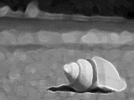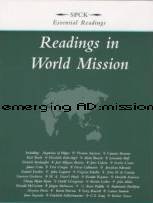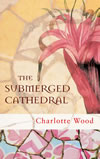April 03, 2007
why am I a vegetarian?
Should all Christians be vegetarian? Yes.
Will meat eaters get to heaven? Yes.
Over the weekend I was asked by two different people why I am a vegetarian. Last nite I went to a vegetarian cooking evening, to learn about tomato tarts, pumpkin and kumara balls, tortilla stack. It seems an appropriate time to narrate my conversion, which occured in 2001. The following processes were significant.
A Bible conversation: When I was 20, I led a team of Christian young people to Nicaragua. We deliberately chose to partner with group from Universities in Australasia. One of the group, not a Christian, was astounded to discover that I, a Christian, ate meat. He pointed out to me that the Garden of Eden was meat-free. I still savour the irony, me a Christian, getting a Bible lesson from a non-Christian. Since then I have been forced to consider the reality of Isaiah's vision of lion and lamb together. I am currently writing a paper on animal spiriuality in light of theology of creation and sacramentality.
An essay on population growth in my first year of university: I learnt that humans have protein needs that can be met by both beans and beef. But you can grow lots and lots of beans in the space it would take a graze a cow. In other words, if humans ate more beans and less beef, than more humans would have their protein needs met. In a world of hunger, I became increasingly uneasy about my meat consumption.
A conversation with a dietician and my family: I did not want my change of eating habits to negatively impact upon a young and growing family. A dietician told us that one meat meal a week, supported by good amounts of vegetables, provides a balanced diet. So if all the Taylor family ate less meat and increased the amount of beans, nuts, spinach eaten during 6 days, then I could go totally vegetarian, without disrupting our growing children, who could still enjoy meat if they wanted.
An emerging spirituality issue: I was becoming increasingly aware that many in the emerging culture were vegetarian, and that good, contextual, missiology would want to consider Paul's words "to the Jew I become a Jew, to the vegetarian, I become a vegetarian."
So I went vegetarian. One of the upsides for me has been a far greater link between my everyday life and my spirituality. My Christian faith feels more entwined with my lifestyle and I am made constantly aware of the justice issues around human consumption every time I eat. I need that.
The second upside is a much more interesting diet, as our family have discovered beans, lentils, chick peas, couscous. Anyone for tortilla stack, tomato tarts, pumpkin and kumara balls?
A downside is that I tend to forget to tell people I am vegetarian when they invite me for dinner. This has lead to some embarrassing moments for all concerned.
Posted by steve at April 3, 2007 03:09 PMThanks for that Steve. As someone who grew up on a farm, I've always found it a hard thing to accept - after all, I lived off the spoils of agriculture for all of my life. But it's started to play on my mind a bit lately - especially with the heightened issues of ecological concern surrounded the gases that extensive farming puts into the atmosphere...
I did one of those online "ecological footprint" tests yesterday and discovered merely being a light meat eater meant I was draining the earths resources...
And the thing holding me back? If I can't eat meat, how can I justify cheese? Is it Vegan or Bust?
Posted by: Spanky at April 3, 2007 04:06 PMthanks for this post, steve.
reading your thoughts on being a vegetarian is one of these moments i know that the emerging conversation is much more than ›church‹ – its about life.
peace.
Oh my your a vegetarian!!!
Posted by: Phil at April 3, 2007 11:26 PM"Should all Christians be vegetarian? Yes."
.... Nah mate, this is too extreme. The 'first nations' people, where I live, hunt all kinds of game that they see as sacred- a gift from the Creator. We have the Inuit ( commonly known as Eskimo which means 'raw flesh eater' ) to the north, who never eat vegetables- they simply can't (maybe when Global warming has it's way they may be able to). And then there's my own Maori iwi with our Kai moana(sea food), Tuna(eels),mutton birds and wild boar(pork bones and puha )- a lot of these are protected as sacred foods under the treaty.
I appreciate the journey you've taken that's led you to vegetarianism with some very important questions that you've posed. But I guess us aboriginal/indigenous peoples are tired of well meaning European based cultures telling us how to live, look, and now eat(...mostly to correct problems that European cultures created in the first place) especially in the name of religion. We don't need new form of 'emergent' Christendom, we wish to 'emerge' from all kinds of colonialist trappings and be free to be Maori, Inuit, Salish, Cree, etc.
Also, there are other things that you can do to reduce the environmental impact of ' 'corporate, meat' consumption. Go organic- including meat products, support local farms, adopt a the 100mile diet,.. to name a few. C'mon, don't deny me my Kiwi spring lamb when I'm so far away, although I mostly eat local lamb here.
" Will meat eaters get to heaven? Yes. ".... Well, I'm sure this question will put all your 'Evangelical, readers at ease - God bless em !!
E Ihoa whakapaingia enei kai
hei oranga mo o matou tinana
ko Ihu Karaiti hoki
to matou ariki e
Amine.
Translation:
Father we ask that you bless our food
as it brings strength, health and sustainance to our bodies
Until our Lord Jesus Christ returns for us all
Amen.
Tangira.
Posted by: Paul Tangira at April 4, 2007 05:14 AMmy daughter and i stopped eating meat because of the population/beef/grain/beans issue and because at that time we had a few scary stories about animal living conditions etc. I didn't find it too hard, but my daughter did. she loved ham and eggs, and steak pie! that was about 15 years ago. maybe more. over the years i have had some embarassing moments too, when eating at the homes of others. if they have gone to the bother of cooking meat, and i haven't told them i don't eat anything with legs on, then i take the smallest possible portion. however, my daughter doesn't! WWJD? actually i still eat fish.
Posted by: Eileen fae Scotland at April 4, 2007 05:18 AMPaul wrote: "guess us aboriginal/indigenous peoples are tired of well meaning European based cultures telling us how to live, look, and now eat(...mostly to correct problems that European cultures created in the first place) especially in the name of religion."
fascinating perspective. great comment. thanks. my ancestors ate meat also Paul. But I'm happy to lay it aside for the sake of God's world and in light of (my interpretation) of the Biblical narrative. are you suggesting that indigenous peoples have some no go areas where culture takes primacy over others forms of understanding?
if so, where does this stop. local Maori deny women the right to speak on the marae. is this loss of voice also culturally sacrosant?
or am i being a cultural imperialist for pointing this out?
a white, western, wondering,
steve
Steve, I respect your reasons for not eating meat and (genuinely) admire your care for the environment but I struggle to see that every Christian must be a vegetarian. I'm not as convinced that the biblical narrative is vegetarian. I read so much in scripture where God seems to be instituting meals that involve eating entire animals (e.g. the Passover). Have I misread this? Can you help me out here...?
Posted by: Andrew at April 4, 2007 11:15 AMthere's a tension here isn't there Andrew and I'm deliberately pointing to this tension to get people thinking. no meat in the garden; Noah is allowed to eat meat in Genesis 9;
so are we going back to the garden of eden? or is this a trajectory and with Noah (and the passover) we are moving forward to something else?
further, i am prepared to decide that the Biblical evidence is not conclusive either way, but that our care for the planet is a lifestyle demanded by our outworking of a Christian care for creation and to not live within our global footprint is sin.
steve
Posted by: steve at April 4, 2007 11:24 AMAs someone who has grown up and lived on small farms for most of my life yet has practiced vegetarian diet during seasons of lent and during periods of urban life, here's a few thoughts:
I can appreciate Paul's perspective on the issue of indigenous diet. And remember indigenous should also include any people who have lived close to the land for as many centuries as Maori; Gaelic, Scandinavian, Siberian etc. I mentioned these groups because they also inhabit areas where a complete vegetarian diet would be difficult if we all lived in a "permaculture paradise".
However, globalisation has shifted the equation somewhat in that our food consumption is measured and available on a global basis. I'm a little suspicious about the carbon footprint calculators because of their one size fits all approach to calculating ecological impact; what about the vegetable gardening small holder who eats home raised chickens and goats or hunts rabbits and never travels by airoplane? Even so a few more legumes in our diet would be wise. Another farming friend of mine (from Germany) and I were discussing this subject the other day and decided that animal husbandry should be only a suplemenetary part of wholistic farming systems rather than the foundation of exploitative farming systems. This is how it was prior to the US led global agricultural reforms that followed WWII.
As for Christians; the Benedictine rule advocates a simple but adequate vegetarian diet and St Francis' rule for his "Third order" advocated a minimum of meat in the diet. While diet doesn't need to consume us as Christians, we do have traditions of wisdom that guide us into responsible and spiritually aware practices of eating, and given the global era in which we live discernment should at least compell us to do better than McDonalds or KFC (quite different from lamb or muttonbird).
Andrew McDonald
Thanks Hipene for your response,
".. my ancestors ate meat also Paul. But I'm happy to lay it aside for the sake of God's world and in light of (my interpretation) of the Biblical narrative."... That's admirable. The curious thing is my ancestors might have eaten your ancestors - imagine their testimony," before I came to Christ, I ate human flesh." But as we(Maori) were impacted by the biblical narrative, we indeed changed our diet( although I think we have an interesting insight into the idea of Communion(I'll email you a PDF that has an article I wrote on this subject- on page 14)
"are you suggesting that indigenous peoples have some no go areas where culture takes primacy over others forms of understanding?"... Not at all. All cultures have blind spots and need to grow in understanding. I just think that when another culture comes along that thinks its world view is superior to the other that we get into trouble and make assumptions without being properly informed. Apparently Francis Schaffer believed in one Christian world view. I don't, I think as Christians we all come from different cultures/world views and Christ has a place in all of them...To establish a counter cultural presence for its perfection but not to take away it's uniqueness.
As far as Maori protocols regarding women : Every tribe is different but I have noticed changes in that regard, particularly in women's roles on the Marae and cultural expression. Those changes however were initiated from within and not imposed, atleast directly from without.
..."am i being a cultural imperialist for pointing this out?"....I don't believe you have an imperialist agenda in posing your questions. If you did, I would have to refer and act on the wisdom of my ancestors - " can't beat em, eat em ! "
Tena koe !
Tangira.
Posted by: Paul Tangira at April 4, 2007 11:41 AMIsn't saying there is one right way to live a bit fundamentalist?! Surely all of us make choices every day based on our own circumstances, what we think God is telling us at the time. Isn't there a problem also that that all NZ fish is fished unsustainably (sp?) so here it is better to eat organic meat or chicken than NZ fish, from an environmental point of view. So the environment argument is tricky one, with lots of grey areas. Having said that, I love the way these environment discussions are becoming so much more mainstream - like the Wasted programme on TV - rather than being considered on the hippy margins.
Posted by: Jan at April 4, 2007 02:03 PMI'm not sure how your "Christianity" has anything to do with your decision to be vegetarian, other than your tying it to The Garden (which you seem to dismiss with Noah). Other than that, it seems to be ecological/rational. Am I missing some connections (often based on our non-similar cultures)?
Wouldn't having few or no children be a better alternative? I mean, wouldn't stopping the increase of that which drains resources, ALL resources, be the best route?
Trying to work this out in the out,
David M.
David: I guess I just assume that an ecological response and an ethical response is funded by a Christian theology of creation, so there's not a separation between "Bible" and "ecology."
Jan: long time since I've been called a bit of a "fundamentalist." Perhaps being black and white can be a rhetorical strategy to allow a focus on the grey of how then might we live. Anyhow, off to blow up another butchers.
steve
Posted by: steve@emergentkiwi.org.nz at April 4, 2007 02:54 PMInteresting . . .
One man's faith allows him to eat everything, but another man, whose faith is weak, eats only vegetables. . .
But neither should look down on or condemn one another, because God Himself has accepted them both.
He who eats meat, eats to the Lord, and gives thanks to God for it; and he who abstains, does so to the Lord and gives thanks to God. For none of us lives to himself alone and each of us will give an account of himself to God.
We should stop passing judgment on one another. Instead, make up your mind not to put any stumbling block or obstacle in your brother's way.
As one who is in the Lord Jesus, I am fully convinced that no food is unclean in itself.
But if you regard something as unclean, then for you it is unclean. If your brother is distressed because of what you eat, you are no longer acting in love. Do not by your eating destroy your brother for whom Christ died. Do not allow what you consider good to be spoken of as evil.
For the kingdom of God is not a matter of eating and drinking, but of righteousness, peace and joy in the Holy Spirit, because anyone who serves Christ in this way is pleasing to God and approved by men.
Make every effort to do what leads to peace and to mutual edification. Do not destroy the work of God for the sake of food.
All food is clean, but it is wrong for a man to eat anything that causes someone else to stumble. It is better not to eat meat or drink wine or to do anything else that will cause your brother to fall.
So whatever you believe about these things keep between yourself and God. Blessed is the man who does not condemn himself by what he approves. But the man who has doubts is condemned if he eats, because his eating is not from faith; and everything that does not come from faith is sin.






